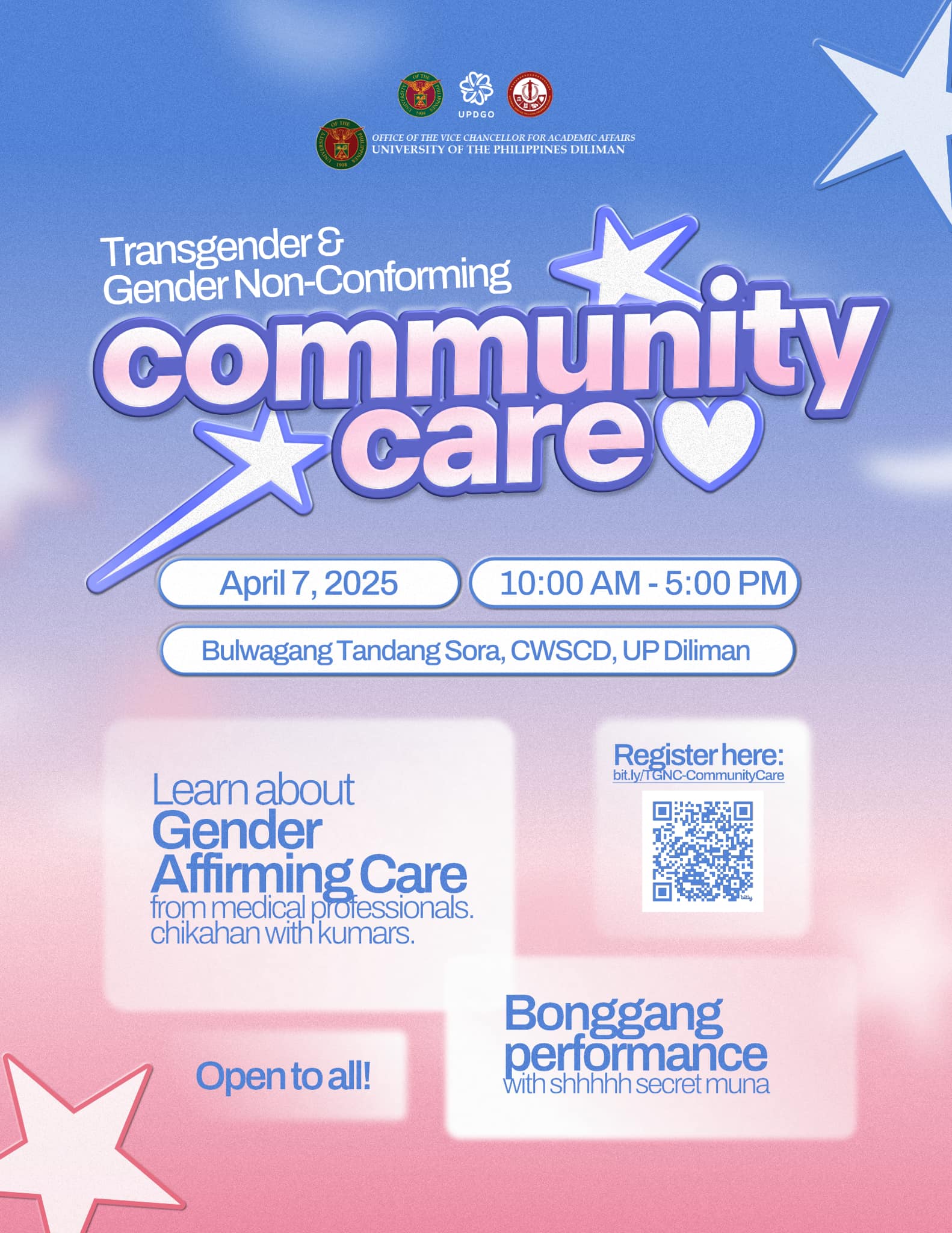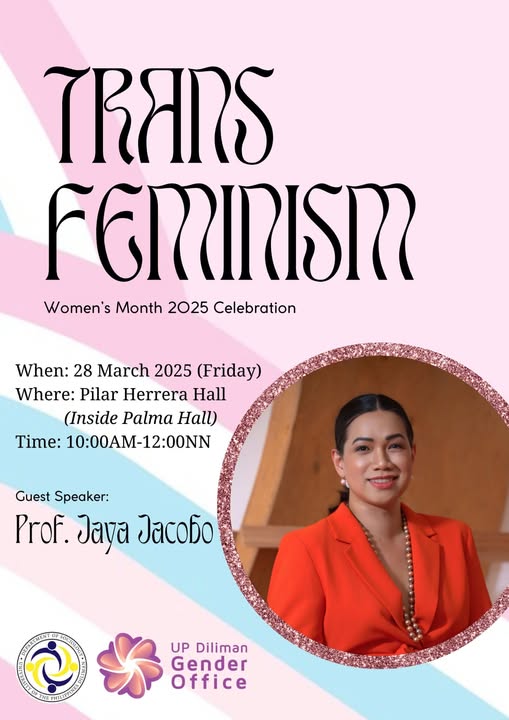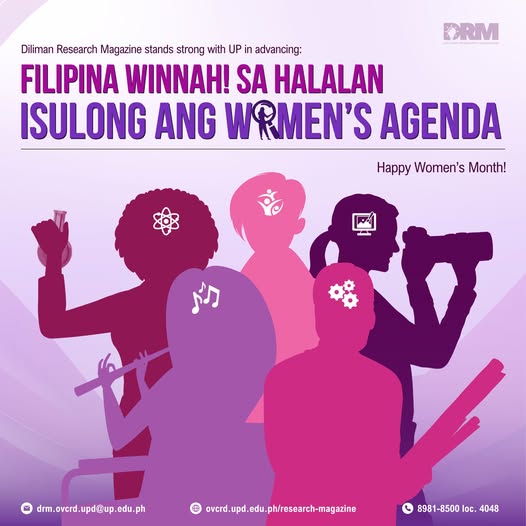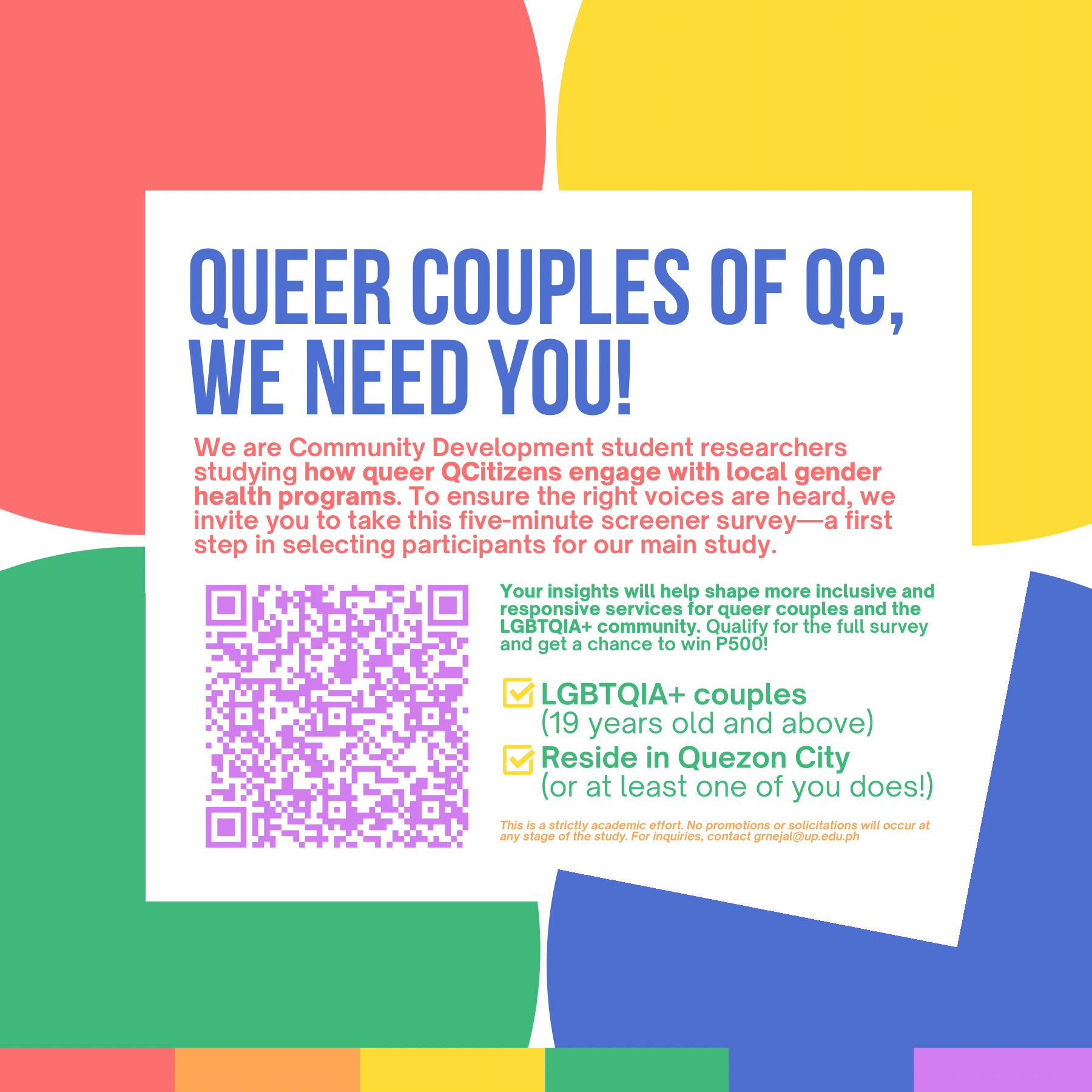SOGIESC & TRAINING PROGRAM
UP Diliman Gender Office
Introduction to the Program:
The SOGIESC & Training Program of the UP Diliman Gender Office responds to the University’s needs for inclusive efforts on capacity-building and awareness-raising on gender mainstreaming efforts and opportunities to further develop programs, policies and activities related to Gender and Development (or GAD).
The program also extends its services in aiding efforts from various groups and institutions from other state universities and colleges (SUCs), local government units (LGUs), non-government organizations (NGOs) and private institutions. Guided by local and international mandates on human rights, the SOGIESC & Training program aims to address concerns of requesting units that respond initially to their practical and strategic needs and coming up with mechanisms to further forward gender equality and empowerment within their unit’s operations and physical spaces.
The program also aids in efforts in forwarding SOGIESC & LGBTQIA++ rights, especially in contributing to policy making efforts, campaigns and advocacy, academic consultations and other endeavors related to SOGIESC Equality.
Trainings Offered
(can be conducted online, onsite or hybrid capacities):
BASIC/INTRODUCTORY SESSION:
- Gender Sensitivity Training / Orientation – basic orientation on concepts, issues, mandates, laws and initiatives related to Gender and Development. The GST/GSO is the introductory session to gender and development. By practice, the GST/GSO also consists of the UP Anti-Sexual Harassment Code Orientation, conducted by the Office of Anti-Sexual Harassment UP Diliman (or OASH UPD).
LEVEL-UP / ADVANCED SESSIONS:
- Orientation on SOGIESC – more in-depth discussions on concepts, issues and resolutions to understanding sexual orientation, gender identity, gender expression and sex characteristics, and the current context of the LGBTQIA++
- Gender-based Violence Prevention and Response – this session equips gender-based violence (or GBV) first responders such as security personnel, guidance counselors, healthcare workers and gender and development (or GAD) workers with relevant information pertaining to initial concepts and awareness on GBV, and preventive and gender-responsive mechanisms in addressing GBV cases.
- Gender Fair Communication – awareness of misogynistic and sexist uses of language in Philippine culture, and applying gender sensitivity in the use of language and communication protocols such as in formal transactions and workplace interactions. This topic is also related to Gender-Sensitive Interviewing.
- Orientation on Masculinities – an offshoot of the GST, masculinities provides an understanding of men’s current contexts and the development of masculinity in Philippine and global cultures and how it is also affected by social construction. The orientation also gives insights as to how toxic masculinity can be avoided towards newer diverse perspectives of being a man in the Philippines.
OTHER REQUESTED TOPICS
- HIV/AIDS 101 – understanding the human immunodeficiency virus and current mandates of prevention and caring for people living with HIV (or PLHIVs), minimizing stigma and awareness on different sexually-transmitted infections (or STIs)
- Sexual and Reproductive Health Rights – basic orientation on current issues and mandates on sexual and reproductive health rights as mandated by the Reproductive Health Law of 2012 and other initiatives in responding to concerns on sexual and reproductive rights
- Gender Mainstreaming and GAD Planning and Budgeting – discussions on Gender and Development (or GAD) mandates according to the Gender and Development Code and the DBM-PCW circulars on the 5% GAD budget.
- Legal Literacy Trainings – discussions about local ordinances and laws
- UP Gender Guidelines
- Safe Spaces Act
- Anti-Violence Against Women and their Children
- Magna Carta of Women
- Philippine HIV/AIDS Law






